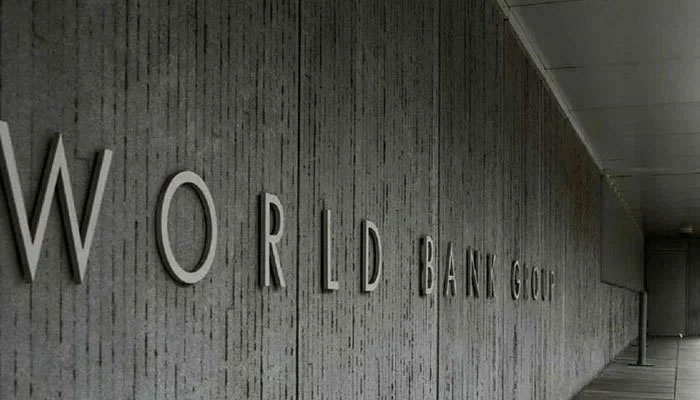WB approves $450m for flood-hit houses’ reconstruction in Sindh
ISLAMABAD: The World Bank has approved $450 million in additional financing for the Sindh Flood Emergency Housing Reconstruction Project to support resilient housing reconstruction for people in the province affected by the 2022 floods.
The new support will build on the original $500 million project, approved in December 2022, which has supported owner-driven and multi-hazard resilient reconstruction of over 410,000 core housing units.
The additional financing is intended to scale up the comprehensive housing reconstruction efforts in Sindh, covering at least 360,000 additional eligible beneficiaries. The additional resources will also support the provision of at least 30,000 safely managed water, sanitation, and hygiene (WASH) facilities.
“Building resilience to natural disasters and climate shocks through strengthening physical infrastructure, particularly for the most vulnerable has been a key element of the World Bank’s support in flood-affected areas of Sindh Province,” said Najy Behassine, World Bank Country Director for Pakistan. “This additional financing will also strengthen efforts at providing and improving safely managed water, sanitation, and hygiene services which play a critical role in preventing water-borne diseases which contribute to the high rates of child stunting in the province.”
The new financing will ensure that vulnerable households especially single or widowed women, the elderly, persons with disabilities, and the ultra-poor, are prioritized for reconstruction. The project will encourage their participation in managing housing construction activities through community engagement (establishment of village reconstruction committees) and financial inclusion (provision of bank accounts for female-headed households). Furthermore, a grant of up to Rs50,000 will be provided to eligible beneficiaries to support housing improvements, ensuring their homes are accessible and tailored to meet the specific disability needs.
“The additional financing aims to extend the benefits of the parent project, particularly benefiting the most economically and climate vulnerable members of the society and prioritizing citizen engagement and feedback,” said Kamran Akbar, Task Team Leader of the project.
“It will also train masons with multi-hazard housing reconstruction standards, setting the trend of creating climate-resilient houses, boosting the local economy through use of local materials and labor, and empowering the vulnerable population through provision of safe shelter, financial inclusion and community engagement activities.”
The Global Facility for Disaster Reduction and Recovery (GFDRR) supported the Sindh Flood Emergency Housing Reconstruction Project through a post-disaster needs assessment, guidance on geo-enabled management systems, and technical assistance, advancing resilient recovery and climate adaptation in Sindh.
-
 Pal Reveals Prince William’s ‘disorienting’ Turmoil Over Kate’s Cancer: ‘You Saw In His Eyes & The Way He Held Himself’
Pal Reveals Prince William’s ‘disorienting’ Turmoil Over Kate’s Cancer: ‘You Saw In His Eyes & The Way He Held Himself’ -
 Poll Reveals Majority Of Americans' Views On Bad Bunny
Poll Reveals Majority Of Americans' Views On Bad Bunny -
 Wiz Khalifa Thanks Aimee Aguilar For 'supporting Though Worst' After Dad's Death
Wiz Khalifa Thanks Aimee Aguilar For 'supporting Though Worst' After Dad's Death -
 Man Convicted After DNA Links Him To 20-year-old Rape Case
Man Convicted After DNA Links Him To 20-year-old Rape Case -
 Royal Expert Shares Update In Kate Middleton's Relationship With Princess Eugenie, Beatrice
Royal Expert Shares Update In Kate Middleton's Relationship With Princess Eugenie, Beatrice -
 Andrew Mountbatten-Windsor’s Leaves King Charles With No Choice: ‘Its’ Not Business As Usual’
Andrew Mountbatten-Windsor’s Leaves King Charles With No Choice: ‘Its’ Not Business As Usual’ -
 Dua Lipa Wishes Her 'always And Forever' Callum Turner Happy Birthday
Dua Lipa Wishes Her 'always And Forever' Callum Turner Happy Birthday -
 Police Dressed As Money Heist, Captain America Raid Mobile Theft At Carnival
Police Dressed As Money Heist, Captain America Raid Mobile Theft At Carnival -
 Winter Olympics 2026: Top Contenders Poised To Win Gold In Women’s Figure Skating
Winter Olympics 2026: Top Contenders Poised To Win Gold In Women’s Figure Skating -
 Inside The Moment King Charles Put Prince William In His Place For Speaking Against Andrew
Inside The Moment King Charles Put Prince William In His Place For Speaking Against Andrew -
 Will AI Take Your Job After Graduation? Here’s What Research Really Says
Will AI Take Your Job After Graduation? Here’s What Research Really Says -
 California Cop Accused Of Using Bogus 911 Calls To Reach Ex-partner
California Cop Accused Of Using Bogus 911 Calls To Reach Ex-partner -
 AI Film School Trains Hollywood's Next Generation Of Filmmakers
AI Film School Trains Hollywood's Next Generation Of Filmmakers -
 Royal Expert Claims Meghan Markle Is 'running Out Of Friends'
Royal Expert Claims Meghan Markle Is 'running Out Of Friends' -
 Bruno Mars' Valentine's Day Surprise Labelled 'classy Promo Move'
Bruno Mars' Valentine's Day Surprise Labelled 'classy Promo Move' -
 Ed Sheeran Shares His Trick Of Turning Bad Memories Into Happy Ones
Ed Sheeran Shares His Trick Of Turning Bad Memories Into Happy Ones




